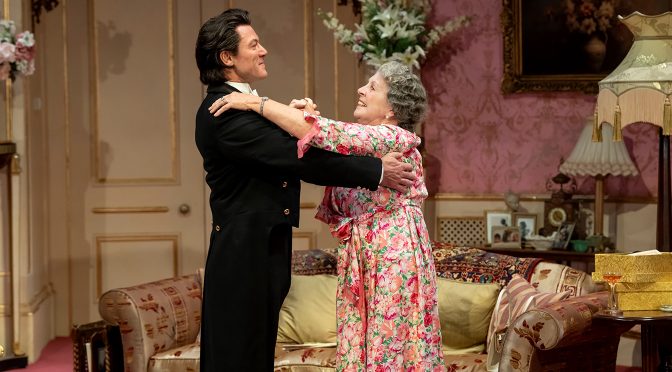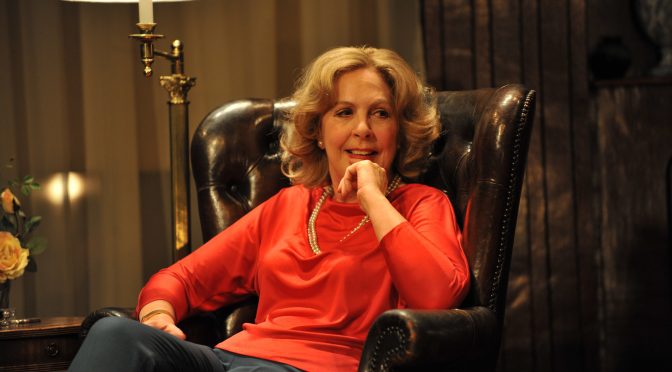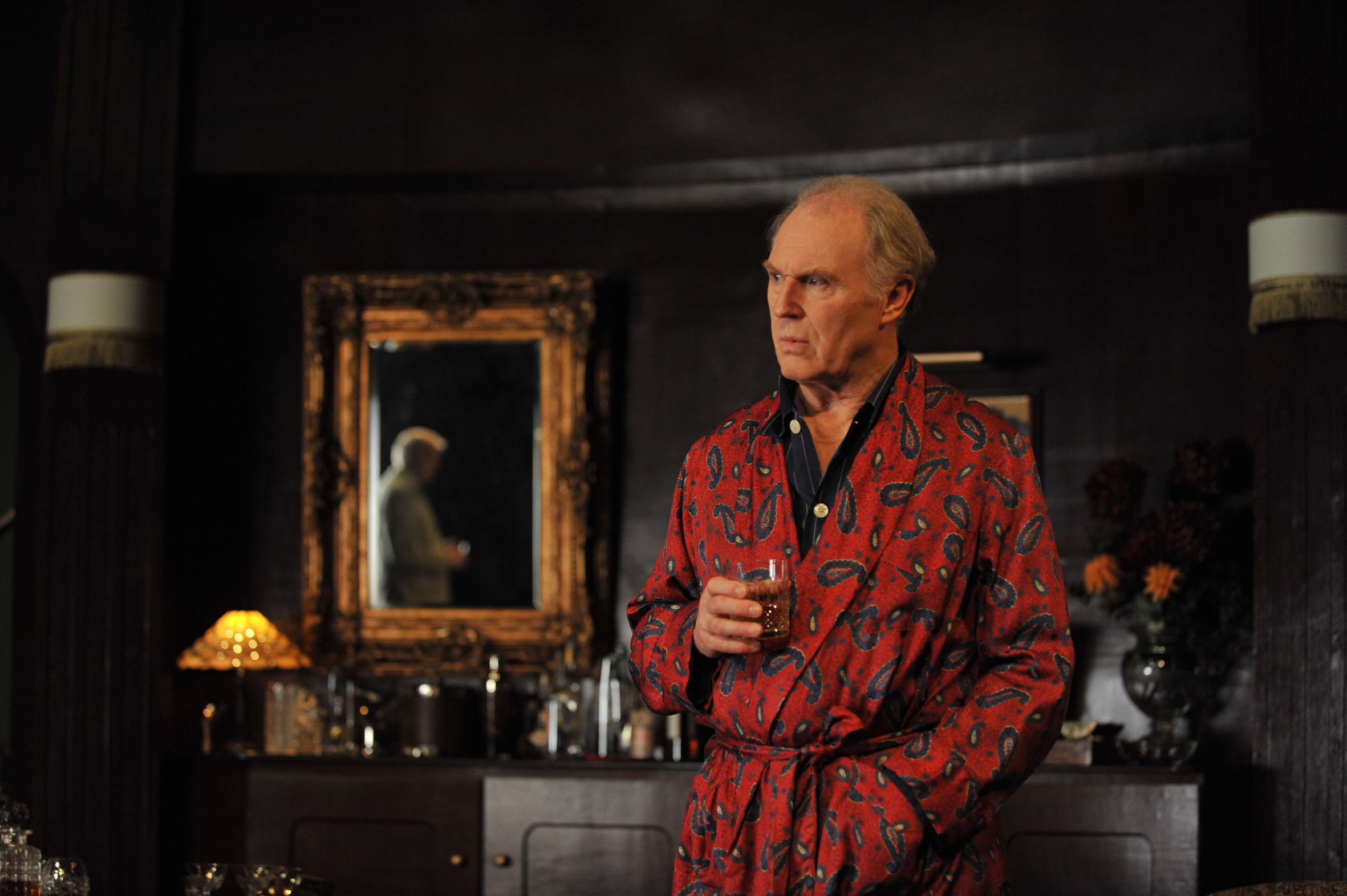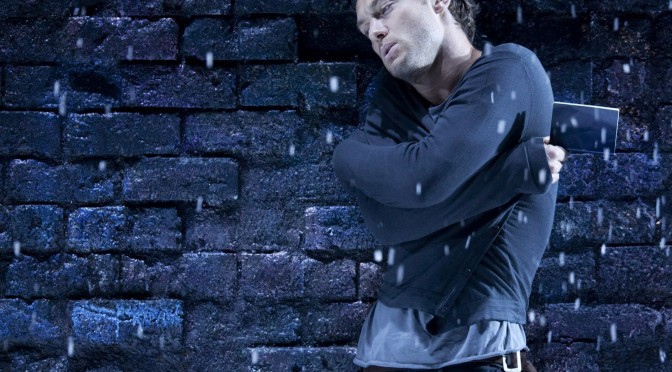It’s hard not to suspect that Marcelo Dos Santos’ play is in the West End because people are interested in Royalty. This fictional account of the Queen Mother and her butler, Billy Tallon, is good. But there isn’t a lot to it. At its best it offers performances to sit back and enjoy: confident, subtle, and making the most of some solid comedy writing.
Charm comes from the characters (not that they are closely, or convincingly, written) who endear and amuse. Billy is gay, so there are two Queens here (ha, ha) with jokes, just a little naughty, about their adventures and attitudes. Not a lot goes on and there’s not much for the performers to convey. But Penelope Wilton and Luke Evans do very well in the lead roles.
The affection Billy and the Queen Mum feel for each is neatly used – both papering over and creating tension. He is long serving but not long-suffering with “the eyes of a religious zealot” when the two first meet (flashback scenes make a strong showcase for Ilan Galkoff who plays a younger Billy).
The Queen Mother is…well…she’s the Queen Mum and gets off very lightly. While plenty of her behaviour is unpleasant the play owes too much to the Royals to really criticise. Meanwhile, Billy is a “boon” to her, especially when we see her as an increasingly lonely old lady. At least his fears of being only “marginalia” in her story is a fate Dos Santos successfully prevents.
When it tries to add bite Backstairs Billy fails. There’s a sitcom moment with Billy’s one night stand, who makes an unwelcome return, that’s successful until politics is brought into the mix. And the power play between the queen and Billy gets nasty and threatens to leave the audience with a sour taste in a clumsy fashion.
Director Michael Grandage keeps the action brisk – necessary in such a static play. Christopher Oram’s set and costume design are accomplished. And there are corgis – real ones! There’s plenty of talent here, and fun moments. But efforts to show changes in British society ring hollow. Backstairs Billy doesn’t give much more than a good giggle.
Until 27 January 2024
www.michaelgrandagecompany.com
Photo by Johan Persson




